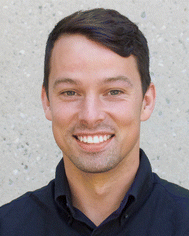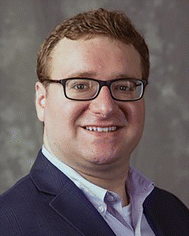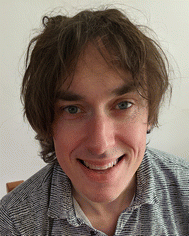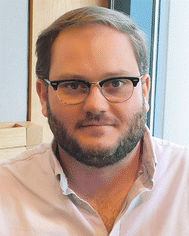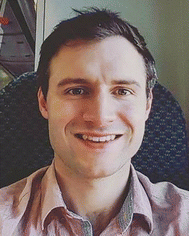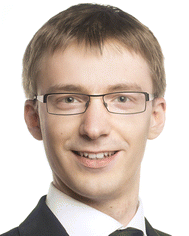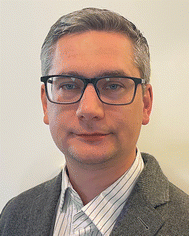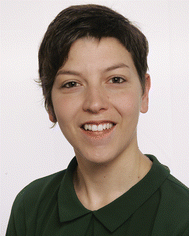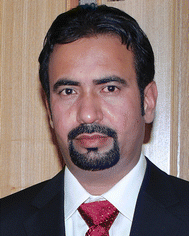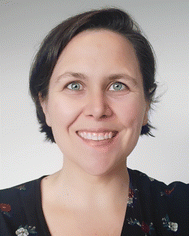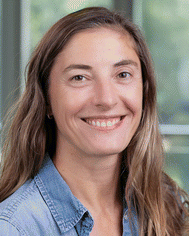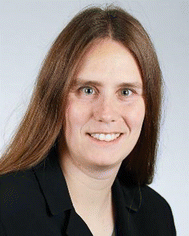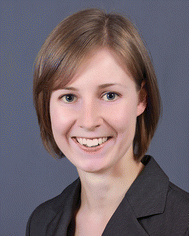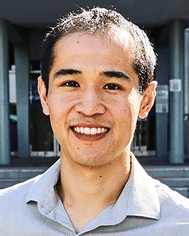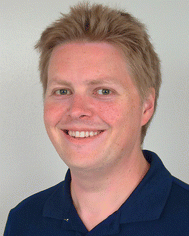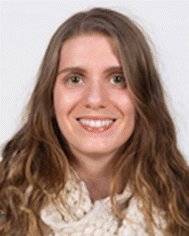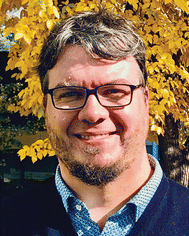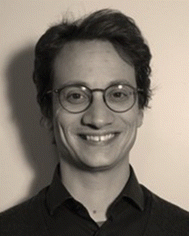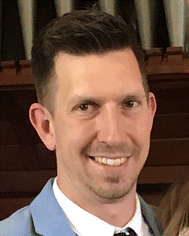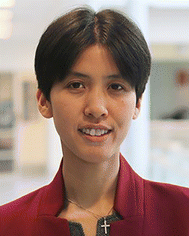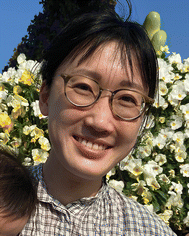Contributors to our Emerging Investigators collection
This Profile article offers a brief insight into some of the researchers who have contributed to this themed collection on the emerging investigators in medicinal chemistry and the great work that is being done by them. We would like to congratulate them and their teams on their achievements to date and hope they have continued success in the future as they continue their careers within the medicinal chemistry field.
Samira Husen Alamudi received her PhD in chemistry from the National University of Singapore under the supervision of Prof. Young-Tae Chang in 2015. She is currently a research fellow at the Institute of Bioengineering and Bioimaging A*STAR Singapore in Dr Ichiro Hirao's group. Her research interests include rational design of background-free fluorescent probes for biomolecular and cellular imaging. She is also interested in the generation and application of unnatural base-containing nucleic acid aptamers for therapeutics and diagnostics.
Samuel Banister was born in Australia, in 1983. He received his PhD in Medicinal Chemistry from The University of Sydney, Australia in 2011, and undertook postdoctoral training at Stanford University, USA in 2014. In 2018 he joined The Lambert Initiative for Cannabinoid Therapeutics as Team Leader in Medicinal Chemistry. Currently, he is moving into a new role as co-founder and Chief Scientific Officer of Psylo, an Australian biotechnology company focused on the development of new antidepressants inspired by the pharmacology of psychedelics. His current research interests are: cannabinoids, psychedelics, and neuropsychiatric drug development.
Michael W. Beck earned his B.S. in Chemistry (Biochemistry Concentration) at Tennessee Technological University in 2011 where he started his research career by performing undergraduate research with Edward Lisic. He then obtained his PhD in Chemistry (2015) at the University of Michigan with Mi Hee Lim. After completing his postdoctoral studies with Bryan Dickinson at the University of Chicago, he joined the Department of Chemistry and Biochemistry at Eastern Illinois University as an assistant professor in 2019. His research group focuses on designing chemical tools to study biological problems in live cells while training the next generation of scientists.
Michael Bodnarchuk was born in Great Britain, in 1984. He received his first-class chemistry degree from the University of Southampton in 2008, after which he received his PhD in computational solvation analysis from Southampton in 2013 under the supervision of Professor Jonathan Essex. In 2013 he joined Imperial College London as a postdoctoral researcher looking at the modelling of oil-based lubricants in collaboration with BP. In 2015 he joined Charles River in Harlow as a computational chemist and since 2017 he has been a computational chemist at AstraZeneca, Cambridge. Michael's current research interests are focussed around novel computational free energy methods and covalent inhibitors.
George M. Burslem obtained his undergraduate degree in Chemistry from the University of Bristol spending a year in the Chemical Biology group at Pfizer. He carried out his master's research with Professor Tom Simpson FRS at Bristol before moving to the University of Leeds for his doctoral studies under the supervision of Professors Andrew Wilson and Adam Nelson focused on inhibiting protein–protein interactions. He was awarded his PhD in 2015 and moved to Yale University to perform postdoctoral research in the group of Professor Craig Crews, supported by a Leukemia and Lymphoma Society career development fellowship. In January 2020, George started his independent career at the University of Pennsylvania as an Assistant Professor in the Departments of Biochemistry and Biophysics, Cancer Biology and the Penn Epigenetics Institute. The Burslem lab is interested in developing chemical tools to understand and modulate lysine post-translational modifications.
Stephen Cochrane was born in Northern Ireland in 1988. After graduating with an MSci in Chemistry from Queen's University Belfast (QUB) in 2010, he moved to Canada to undertake a PhD in Organic Chemistry with Professor John Vederas at the University of Alberta. In 2016 he was awarded a Sir Henry Wellcome Postdoctoral Fellowship to study the transport of lipid-linked carbohydrates across bacterial cell membranes at the University of Oxford with Professor Benjamin G. Davis. In 2017 Stephen was appointed as a Lecturer in Organic Chemistry at QUB, and he was promoted to Senior Lecturer in 2020. Current Cochrane lab research focuses on the study of lipid II-binding antimicrobial peptides and the development of glycolipid-based probes to assay novel antibiotic targets. Outside of work he loves long-distance running and has a marathon PB of 2.39:07 (April 2021).
Jonathan Cramer obtained his PhD from the Philipps-Universität Marburg (Germany) in the group of Prof. Gerhard Klebe, studying the role of water networks in protein–ligand interactions. He then joined the laboratory of Prof. Beat Ernst at the University of Basel (Switzerland), where he worked on the development of glycomimetic drugs for the treatment of bacterial and viral infections. He was recently appointed to an assistant professorship at the Heinrich-Heine-University of Düsseldorf, where his group is focused on the medicinal chemistry and chemical biology of carbohydrate-derived drugs.
Dr Darren Derksen was born in Canada, in 1981. He received his PhD in Organic Chemistry from the University of Alberta in 2008, and was then a postdoctoral researcher at the University of Cambridge, UK until 2010. He then joined St. Francis Xavier University (Nova Scotia, Canada) as an Assistant Professor before moving to the University of Calgary (Alberta, Canada) in 2014 to take up the Alberta Children's Hospital Foundation Junior Chair in Medicinal Chemistry. His current research interests are based on the development of new synthetic methodologies to facilitate the synthesis of bioactive molecules in the areas of cancer and pain.
Stephanie Federico was born in Italy, in 1983. She received her PhD in Chemical and Pharmaceutical Sciences from the University of Trieste, Italy, in 2011. In 2013 she joined the Department of Chemical and Pharmaceutical Sciences of the University of Trieste as an Assistant Professor, and, currently, she is an Associate Professor at the same institution. Her research is mainly focused on the design, synthesis and characterization of heterocyclic compounds as ligands for specific target proteins. In particular, her current research interests are the development of adenosine receptor antagonists (e.g. for A2A and A3 subtypes), protein kinase GSK-3β and CK-1δ inhibitors and 5′-ecto-nucleotidase (CD73) inhibitors.
Muhammad Hanif was born in Pakistan. He completed his BSc and MSc in Chemistry at the University of Punjab (Pakistan). He received his PhD (Dr. rer. Nat) in Chemistry from the University of Vienna (Austria) in 2010. After a short stint as an Assistant Professor at the COMSATS University Islamabad (Pakistan), he moved to New Zealand in 2013 as an Erwin Schrödinger Fellow at the University of Auckland, where he is currently a Senior Research Fellow (above the bar). His research interests are in synthetic inorganic chemistry, coordination chemistry, and medicinal bioinorganic chemistry. His research group's key focus is synthesising new molecules and materials for practical applications.
Dr Jessica Holien was born in Australia, in the 80s. They received their PhD in Medicinal Chemistry from Monash University in 2010, whilst also completing a Graduate Certificate in Commercialising Science. After a few small post-doctoral stints in industry, in 2009 they joined St Vincent's Institute as a postdoc, before being promoted to Team Leader in 2019. Since June 2020, they have been a Vice Chancellor's Fellow at RMIT University. Their current research interests are using cutting-edge, machine learning methods to enrich traditional bioinformatic analysis and improve high-throughput chemistry screens, leading to faster small molecule chemical hit identification. They have a particular interest in understanding the mechanisms behind protein–protein interactions and developing tools to design small molecule inhibitors to modulate them.
In 2008, Dr Kim Huard graduated from the Université de Montréal with a PhD in organic chemistry and contributed to the total synthesis of a structurally complex natural product as an FQRNT postdoctoral fellow at the University of California, Irvine. Kim joined Pfizer in 2010 as a medicinal chemist in the cardiovascular and metabolic disease research unit where she contributed to the discovery of three clinical candidates. Kim joined Genentech in 2018 where she is currently a Senior Director of Chemistry and her research interests include modulation of different types of biological targets with small molecules, targeting specific compound dispositions such as liver selective agents and various approaches to hit generation for new targets.
Dr Manuela Jörg is a Monash and Newcastle (UK) University Research Fellow with an interest in developing small-molecular drugs and pharmacological tools to support different aspects of drug discovery. She obtained a PhD in Medicinal Chemistry from Monash University, in addition to a Bachelors and Masters in Chemistry at the University of Applied Sciences Northwestern Switzerland and the University of Basel, respectively. Prior to her academic career, she completed an apprenticeship as a chemical lab-technician and has experience working in industrial and government organisations.
Dr Christina Lamers was born in Germany, in 1986. She received her PhD in Pharmaceutical Chemistry from the Goethe-University Frankfurt/Main in Germany in 2014. In 2015 she joined the Laboratory of Therapeutic Proteins and Peptides of Prof. Christian Heinis at the EPFL (Lausanne, Switzerland) as a post-doctoral fellow, focusing on bicyclic peptides as therapeutics and their identification by phage display. During this postdoc she won a Marie-Curie individual fellowship. Since November 2017 she has been a senior postdoc in the Molecular Pharmacy group of Prof. Daniel Ricklin, University of Basel (Switzerland). Her current research interests are the identification of cyclic peptides by phage display and their development as therapeutics to target the innate immune system, with focus on the intrinsic coagulation and complement cascade.
Dr Yu Heng Lau was born in Sydney, Australia. He received his PhD in Chemistry from the University of Cambridge in 2015, then worked at Harvard Medical School and the Wyss Institute for Biologically Inspired Engineering as a Sir Henry Wellcome Postdoctoral Fellow in Synthetic Biology. Currently, Yu Heng is a Senior Lecturer and DECRA/Westpac Research Fellow at the University of Sydney, where he leads a research group in the School of Chemistry. His research program spans synthetic chemistry and synthetic biology, featuring two main themes: 1) developing cancer therapeutic leads that target protein–protein interactions at telomeres, and 2) self-assembling protein nanocages as synthetic organelles for hosting catalysis in engineered cells.
Christopher Lohans was born in Canada in 1987. He received his PhD in organic chemistry from the University of Alberta in 2014. He then carried out post-doctoral studies from 2015–2019 in the lab of Prof. Christopher Schofield at the University of Oxford. Currently, he is an assistant professor in the Department of Biomedical and Molecular Sciences at Queen's University. His current research interests are focused on the molecular interactions between β-lactam antibiotics and their associated resistance mechanisms, and the development of new strategies to detect antibiotic resistant bacteria.
Dr Katrina Madden holds a Newcastle/Monash University Academic Track Fellowship in Drug Discovery at Newcastle University, where she performs research jointly between the School of Natural and Environmental Sciences and the Newcastle University Translational and Clinical Research Institute. She completed her PhD in natural product synthesis at Durham University supervised by Professor Andy Whiting, followed by postdoctoral appointments in phenotypic drug discovery and biocatalysis at the University of Oxford in the laboratories of Professor Angela Russell and Professor Kylie Vincent. Her research interests centre on phenotypic drug discovery and developing new chemical tools for precision control of the immune system.
Christoph Nitsche was born in Germany in 1986. He studied chemistry and business administration and received his PhD in medicinal chemistry from Heidelberg University in 2014, for which he was awarded the PhD prize by the German Chemical Society. He worked as a Feodor Lynen Fellow at the Australian National University and as a Rising Star Fellow at the Free University of Berlin. In 2020, he was appointed by the Australian National University where he is currently a Senior Lecturer and ARC DECRA Fellow in the Research School of Chemistry. His research program in medicinal chemistry and chemical biology focuses on drug discovery against infectious diseases, biocompatible chemistry, and peptide and protein modification.
Sebastian Pomplun was born in Germany, in 1985. He received his PhD in organic chemistry from the Max-Planck-Institute of Psychiatry and the Ludwig Maximilian University in Munich in 2015. In 2015 he joined the Chemistry R&D department of Roche Diagnostics GmbH in Penzberg, Germany as a postdoctoral research scientist. Since 2019 he has been a postdoctoral fellow (supported by the German Research Foundation DFG) at the Massachusetts Institute of Technology in the Pentelute lab and worked on rational and combinatorial strategies for the discovery of biohybrid molecules targeting nucleic acids. Sebastian's research interest is focused on combining biological scaffolds with synthetic functionalities for the development of novel therapeutic modalities.
Dr Daniel Priebbenow was born in Australia, in 1986. He received his PhD in synthetic and medicinal chemistry from Deakin University, in 2011. Following postdoctoral research positions at RWTH Aachen University as an Alexander von Humboldt Fellow (Aachen, Germany) and the Monash Institute of Pharmaceutical Sciences (Melbourne, Australia), in 2020 he joined the University of Melbourne as an ARC DECRA Fellow. His current research interests include the development of photochemical strategies for chemical synthesis and the discovery of new anti-tubercular therapeutics.
Clarissa Sit was born in Canada. She received her PhD in Chemistry from the University of Alberta, Canada in 2011, and subsequently received a Banting Post-Doctoral Fellowship and Alberta Innovates Health Solutions Fellowship to carry out post-doctoral research at Harvard Medical School, USA, between 2011 and 2016. In 2016, she joined Saint Mary's University in Halifax, Canada, as an Assistant Professor. In 2018, she was promoted to the rank of Associate Professor, and her research group currently focuses on natural products discovery, applications of chemical ecology to combat animal pathogens, and applications of plant growth promoting bacteria to design new biofertilizers.
Noriko Saito-Tarashima is a lecturer in the Department of Bioorganic Chemistry at Tokushima University. She received her PhD degree in 2016 from Tokushima University under the supervision of Prof. Noriaki Minakawa. After postdoctoral research at the intelligent Tokushima artificial exosome (iTex) project (2014–2016, Tokushima University), she became an assistant professor at Tokushima University in 2016, and since 2019 she has been a lecturer at the same university. Her current research interests are: medicinal chemistry of nucleotide analogues, development of chemically modified oligonucleotides for nucleic acid therapeutics, and synthetic biology using unnatural nucleotide analogues.
| This journal is © The Royal Society of Chemistry 2022 |


